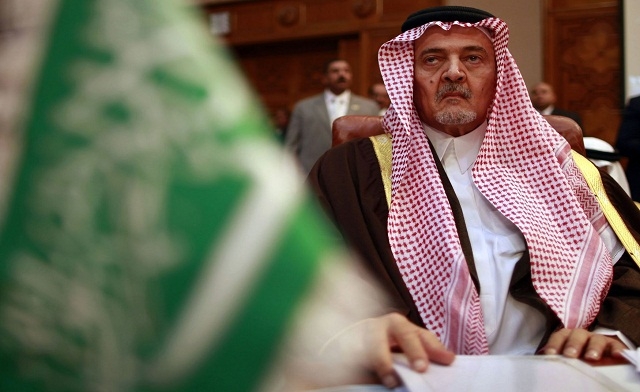Saudi Arabia announced today that it will choose to decline its rotating seat on the United Nations Security Council, citing the “double standards” of the organisation that make it an ineffective body.
Saudi Arabia, Chad, Chile, Lithuania and Nigeria were appointed as non-permanent members of the Security Council yesterday. It is the first time that Saudi Arabia has applied to join the body. Saudi Arabia was to replace Pakistan, whose whose two-year term ends on December 31.
Only yesterday, Saudi Arabia’s U.N. Ambassador Abdallah Al-Mouallimi welcomed his country’s election as “a reflection of a longstanding policy in support of moderation and in support of resolving disputes by peaceful means.”
He also expressed hope that the Syrian people would achieve “their aspiration for freedom and prosperity and unity.”
However, in a statement published by the country’s state news agency this morning, the Foreign Ministry said “The kingdom sees that the method and work mechanism and the double standards in the Security Council prevent it from properly shouldering its responsibilities towards world peace.”
The statement adds, “Therefore Saudi Arabia… has no other option but to turn down Security Council membership until it is reformed and given the means to accomplish its duties and assume its responsibilities in preserving the world’s peace and security.”
Central to Saudi Arabia’s reticence about the Security Council is the oil-rich kingdom’s belief that it has failed to effectively respond to the Syrian crisis. Saudi Arabia has also expressed increasing discontent over the United Nation’s position over “Arab and Islamic issues”, including the Palestinians.
Earlier this month, Saudi Foreign Minister Saud al-Faisal cancel an address to the United Nations General Assembly, an unprecedented move.
“The Saudi decision… reflects the kingdom’s dissatisfaction with the position of the U.N. on Arab and Islamic issues, particularly the issue of Palestine that the U.N. has not been able to solve in more than 60 years, as well as the Syrian crisis,” a source told Reuters.
Saudi Arabia is one of the main backers of the insurgency in its battle to oust Syrian President Bashar Al Assad. Its support has included calls for the UN and international community to intervene to assist the insurgents. Saudi Arabia has also supplied weapons — including powerful anti-tank missiles — to the insurgency.
Following the chemical weapons attacks of August 21, Saudi Arabia backed calls for the U.S. and its allies to take military action against pro-regime forces. The Saudis were set back by the Russia-backed initiative to have Assad’s chemical weapons placed under international control, feeling that the move went against its aim of toppling the Assad regime.
Both Assad and his allies — particularly Russia and Iran — have condemned Saudi Arabia’s support for the insurgency. Following the chemical weapons attacks in August, both Moscow and Tehran used State media to cast blame on the Saudis for the attacks.

